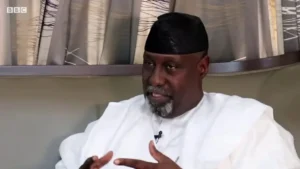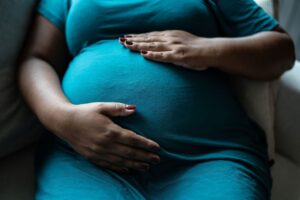Lawyer and activist, Barrister Christopher Chidera, has strongly condemned the Supreme Court’s judgment on IPOB leader, Nnamdi Kanu (SC/CR/1364/2022). He described the ruling as “fake justice in broad daylight” and “invalid from the very beginning.”
In a statement released on Wednesday, Chidera said the judges wrongly applied past cases and ignored the Constitution in Kanu’s matter.
He explained that the Supreme Court made a big mistake by relying on the case of Dokubo-Asari v. FRN (2007), which he believes has nothing to do with Kanu’s situation. He argued that the court also acted illegally by reversing the Appeal Court’s ruling that had already discharged Kanu. According to him, Kanu’s non-derogable rights and the supremacy of the Constitution were ignored.
Chidera stressed that the two cases are very different. He said,
“The government may have detained Mujahid Asari Dokubo years ago on treason charges, but that cannot be used as a template for Nnamdi Kanu. Kanu is educated, aware of his rights, and backed by strong international support. The two cases are not the same.”
He pointed out that Dokubo’s case was about a local arrest and a bail refusal within Nigeria, but Kanu’s case involves extraordinary rendition from Kenya, which included breaking Kenya’s sovereignty and violating the Extradition Act. He called the Supreme Court’s comparison “intellectual fraud.”
Chidera further argued that the proper case to guide the Supreme Court should have been Dikko v. State (1987). That case came from Nigeria’s failed attempt to kidnap Umaru Dikko from London, which showed that international abduction removes a court’s power to try a suspect.
The lawyer also criticized the decision to reopen Kanu’s trial after the Appeal Court had discharged him in October 2022. He said that discharge ended the case completely, and no other court had the right to bring it back. He described the Supreme Court’s action as “judicial necromancy” — reviving a dead case.
Quoting the legal principle of functus officio, he said once a court makes a final decision, it cannot reverse itself on the same matter. According to him, by reopening the case, the Supreme Court acted without jurisdiction.
Chidera also accused the judges of setting aside Kanu’s constitutional rights. He said Section 36 of the 1999 Constitution protects the right to fair hearing and against double jeopardy, and these rights cannot be suspended or limited, even for national security reasons.
He argued that by allowing Kanu’s retrial after discharge and ignoring the illegality of his abduction in Kenya, the Supreme Court violated these non-derogable rights.
The lawyer reminded Nigerians of Section 1(3) of the Constitution, which states that any law or judgment inconsistent with the Constitution is automatically void. He also cited Abacha v. Fawehinmi (2000), where the court itself admitted that the Constitution overrides any inconsistent law.
Chidera concluded that the judgment in FRN v. Nnamdi Kanu was not true law but political interference disguised as legal reasoning. He said:
- Dokubo-Asari’s case does not apply.
- Reversing an Appeal Court discharge is unlawful.
- Section 36 rights are untouchable.
- Section 1(3) makes inconsistent rulings void.
He described the ruling as “a fraud in the name of justice” and insisted that Nigeria cannot use the same crude tactics it once used against Dokubo on Nnamdi Kanu.







